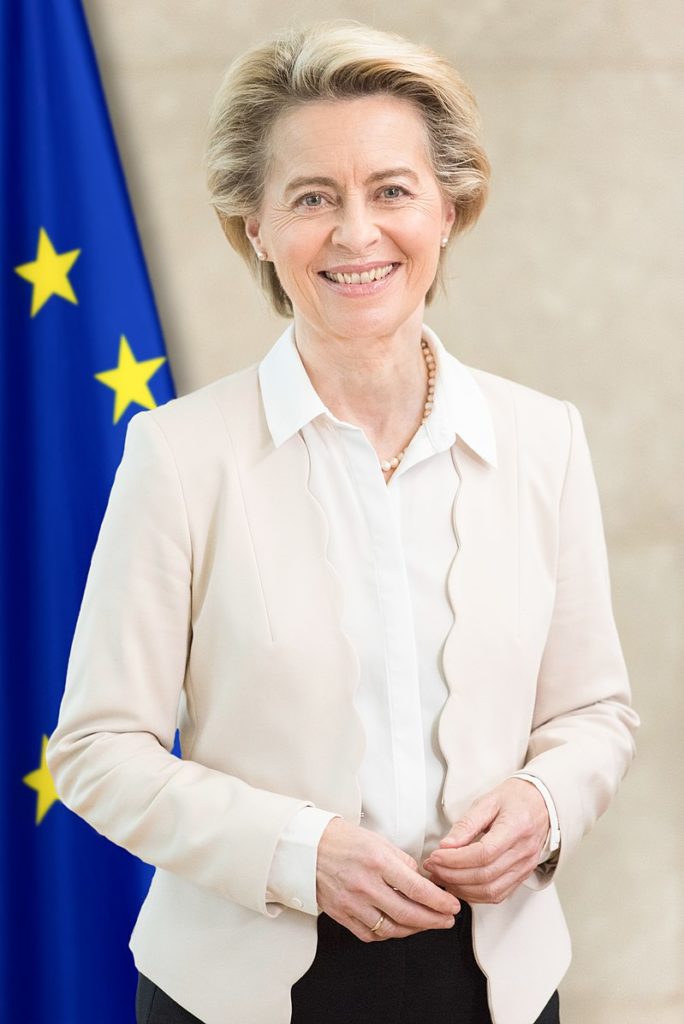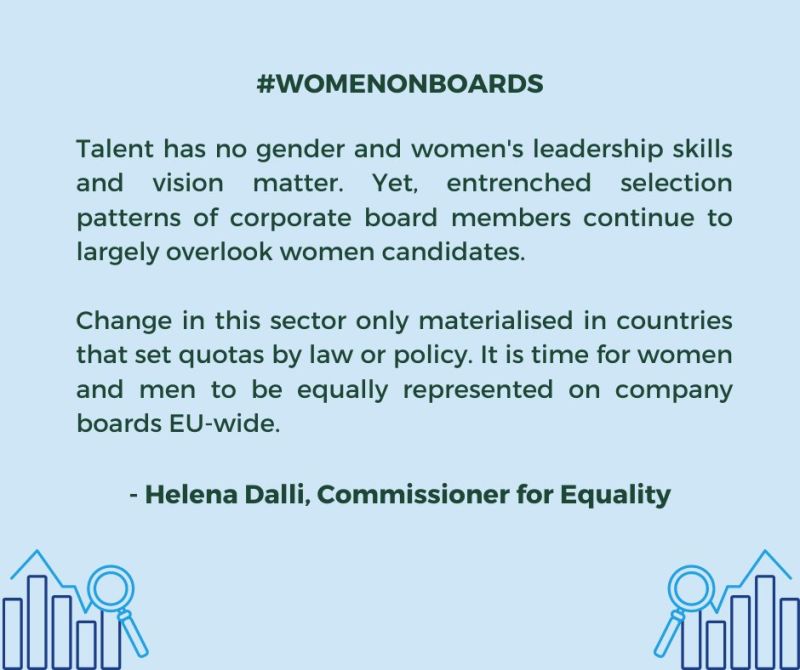From 2026 women must make up at least 40% of non-executive boards and 33% of all directors of listed companies, confirmed the European Parliament.
The European Commission has welcomed the political agreement reached between the European Parliament and the Council on the Directive on improving the gender balance amongst non-executive directors of listed companies proposed by the Commission back in 2012. Europe has many highly qualified women with 60% of current university graduates being female. Nevertheless, women are underrepresented in high-level positions, including on corporate boards; and progress is very slow. Only a third of members of non-executive corporate boards are women and there are even fewer on executive boards.
DRIVING GENDER EQUALITY ON BOARDS
The Directive has set a target for EU companies listed on the EU stock exchanges to accelerate the reach of better gender balance. Companies in Europe must drive gender equality with clear targets and objective appointments based on merit. The agreed Directive will ensure that gender balance in corporate boards of listed companies is sought across the EU; while allowing for flexibility for Member States that have adopted equally effective measures.

INCREASING WOMEN ON BOARDS
The main elements of the Directive include:
- At least 40% of the underrepresented gender must be represented in non-executive boards of listed companies, or 33% among all directors. Member States have to ensure that companies strive to achieve this objective. Companies that do not achieve those objectives must apply transparent and gender neutral criteria in the appointment of directors and prioritise the underrepresented sex where two candidates of different sexes are equally qualified.
- Clear and transparent board appointment procedures with objective assessment based on merit, irrespective of gender. The selection procedure of non-executive directors will need to comply to the following binding measures:
- Where two candidates of different sexes are equally qualified, preference shall be given to the candidate of the underrepresented sex; in companies where the target for gender balance is not achieved.
- Companies must disclose their qualification criteria should the unsuccessful candidate request it. Companies are further responsible to prove no measures were transgressed; if there is suspicion that an unsuccessful candidate of the underrepresented sex was equally qualified.
- Companies must undertake individual commitments to reach gender balance among their executive directors.
- Companies that fail to meet the objective of this Directive must report the reasons and the measures they are taking to address this shortcoming.
- Member States’ penalties for companies that fail to comply with selection and reporting obligations must be effective, proportionate and dissuasive. They could include fines and nullity or annulment of the contested director’s appointment. Member States shall also publish information on companies that are reaching targets, which would serve as peer-pressure to complement enforcement; (“faming” provision).
DIVERSITY A MATTER OF FAIRNESS
“Diversity is not only a matter of fairness. It also drives growth and innovation. The business case for having more women in leadership is clear,” stated the President of the European Commission, Ursula von der Leyen. “After ten years, since the European Commission proposed this directive, it is high time we break the glass ceiling. There are plenty of women qualified for top jobs: they should be able to get them.”

The first time the Commission put the issue of women in economic decision-making high on the agenda “was in 2010”, pointed out the Vice-President for Values and Transparency, Věra Jourová. “Since then, women on boards have risen by 17 percentage points; mainly due to legally binding initiatives implemented in some Member States. “This remains a painfully slow progress. With this Directive, we will collectively accelerate our efforts to strive for gender equality and better balance in economic decision-making.”
Adding to her comments, the Commissioner for Equality, Helena Dalli, said the “agreement on Gender Balance on Corporate Boards takes our Union another step towards stronger and fairer societies. Talent has no gender and women’s leadership skills and vision matter. Yet, entrenched selection patterns of corporate board members continue to largely overlook women candidates. Change in this sector only materialised in countries that set quotas by law or policy. It is time for women and men to be equally represented on company boards EU-wide. Beyond the moral reasons for diversity and inclusion, there are ample benefits of this Directive for companies; including greater creativity and increased productivity.”
NEXT STEPS
The political agreement reached by the European Parliament and the Council is now subject to formal approval by the co-legislators. Once published in the Official Journal, the Directive will enter into force 20 days after publication; and Member States will then need to transpose the new elements of the Directive into national law within two years.
The Commission tabled the proposal on gender balance in company boards in November 2012. It aimed at improving transparency in the selection of board directors in the largest publicly listed companies. While the European Parliament adopted its position in 2013, the Council could not reach an agreement on the file for almost 10 years; with some Member States considering that binding measures at the EU level were not the best way to pursue the objective.

LEADING BY EXAMPLE
In her political guidelines, President von der Leyen committed to building a majority to unblock the Directive on women on boards. Finally, on 14 March 2022, the Council was able to adopt its general approach, unblocking the file. On 23 March 2022, the European Parliament reconfirmed its position, thereby paving the way for negotiations between the two co-legislators. In a bid to lead by example, the Commission has, for the first time, achieved a fully gender-balanced college of Commissioners; since October 2020, 13 out of 27 Commissioners are women. The Commission also strives to reach gender parity (50%) at all levels of its management by the end of 2024.
National legislation and the state of gender balance in economic decision-making vary across Member States. Eight Member States have adopted national gender quotas. Ten Member States have opted for softer non-binding measures; and nine have no substantial legislation on the issue.
Legislative action to address gender imbalance continues to drive progress. Gender imbalance is more than twice as severe in countries that have taken no substantial action against countries that introduced measures. Countries with national quotas have the highest share of women sitting as board members of listed companies. However, to this day only one Member State has achieved effective gender balance on corporate boards.
EU & US PERSPECTIVE
A corporate board of a listed company is balanced when each gender makes up at least 40% of its composition. The EU Gender Equality Strategy 2020-2025 presents policy objectives and actions to make significant progress by 2025 towards a gender-equal Europe. The goal is a Union where women and men, girls and boys, in all their diversity, are free to pursue their chosen path in life, have equal opportunities to thrive, and can participate equally in and lead European society. One of its key objectives is achieving gender balance in decision-making.








































